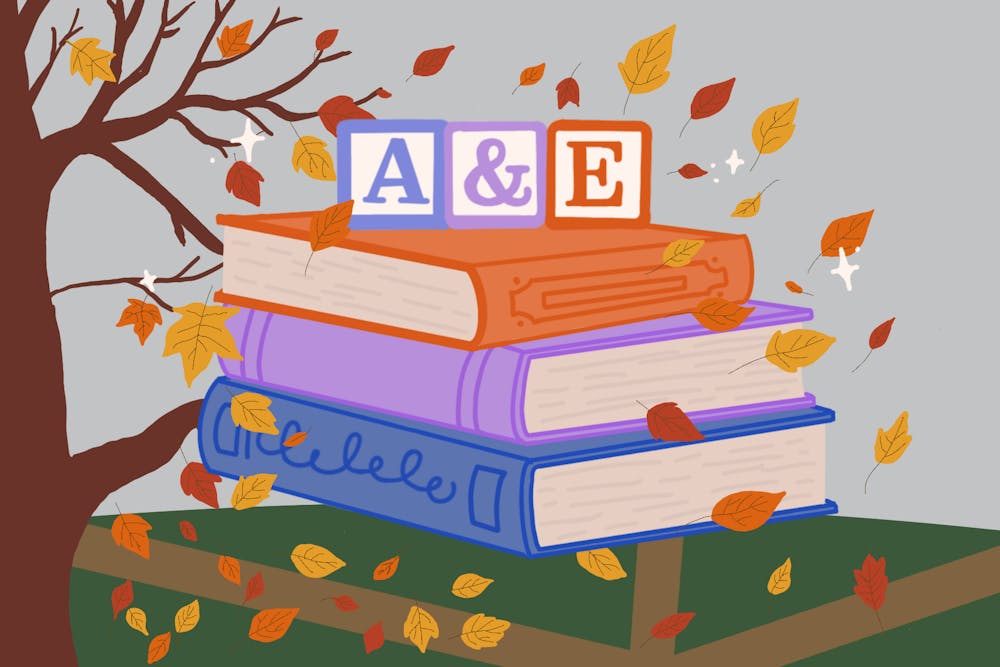As trees get haircuts and paint Grounds in hues of orange and red, the autumnal Georgian architecture may bring to mind another version thereof, one captured to no end on page and screen. Campuses in the fall and winter have produced some of the greatest pieces of realistic fiction to grace the modern oeuvre, but while Grounds is undeniable in its beauty at this time of year, there is no better source for inspiration than a New England boarding school.
The existence of such a school almost necessitates a Bildungsroman –– a coming of age story, social, moral or psychological –– and indeed, countless individuals have chronicled success stories and cautionary tales alike in the setting. The trio of novels below constitutes a few of the genre's finest representations, set at boarding schools that exist as microcosms of the adolescent experience.
“A Separate Peace” by John Knowles (1959)
A wartime elegy disguised as a school memoir, “A Separate Peace” tells the story of Gene Forrester, who returns to the fictional all-boys Devon School 15 years after his graduation. As landmarks bring back memories, he recounts his adolescent friendship with his schoolmate Phineas, better known as Finny.
Where Gene is reserved, Finny is free, his charm and grace seeming to exist entirely outside of the moral and emotional gravity that binds the rest of the world. During their tenure at Devon in the early 1940s, the two exist in a liminal state, too young to fight and yet too old to remain innocent. It is in that state that Knowles constructs a beautiful tragedy –– Gene and Finny are best friends, foils and often rivals, the latter tension simmering beneath the surface of their relationship and of the novel until, inevitably, irreparably, it erupts.
Knowles’ prose is elegant and tightly wrought, maneuvering with the quiet dread of memory and capturing the past as though it were suspended in amber –– with the school itself as a metaphor for the fleeting perfection of youth. His story of coming of age is also one of lost innocence, an inexorable emergence into a world of wounded individuals and wounded realities.
“Prep” by Curtis Sittenfeld (2005)
“Prep” is a Bildungsroman contained within the wrought-iron gates and well-maintained lacrosse fields of a New England boarding school. Lee Fiora is a cautious and observant young girl from Indiana who chooses the fictional Ault School, not for the academic caliber nor college matriculations it offers, but for the lofty and picturesque aesthetic that all such prep schools seem to promote.
Mind ripe with fantasies of a picture-perfect future, Lee comes to Ault seeking, but not seeking out, the sort of life found only in Ralph Lauren ads and 2008’s “Wild Child,” and that is where her self-delusion begins. Indeed, as the story progresses, her lack of self-esteem becomes a crutch on which the narrative leans whenever she finds herself in a compromising situation –– which she does, time and time again.
Sittenfeld’s characters are richly imagined and executed, and her writing is clever and incisive, providing intelligent and evenhanded commentary on class, race and sexuality that remains strong throughout the novel. Her control of tone and perspective is sharp and sharply delivered, enough to keep the reader invested even when her heroine cannot –– an honest, relatable depiction of the flawed and futile identity of youth.
“Old School” by Tobias Wolff (2003)
Set at an elite prep school in the early 1960s, “Old School” is a semi-autobiographical novel following an unnamed narrator from a modest background with dreams of literary greatness. These ambitions come to the surface in the school’s annual writing competitions, where each term’s prize is a private audience with a visiting author –– Robert Frost, Ayn Rand and Ernest Hemingway.
For the narrator, these contests represent not only literary aspiration but a way to belong in a world defined by pedigree and polish. His voice, which Wolff renders with thoughtful precision, oscillates between self-awareness and self-deception. As his desire for recognition grows increasingly desperate, it leads him toward the novel’s central act of transgression.
The aftermath of this event, and the narrator’s reflection upon it from an adult perspective, becomes a meditation on coming of age as a function of education, moral and artistic. “Old School” is both a novel about literature and about integrity, and Wolff’s ultimate argument is that both must be learned the same way –– through honesty and through humility.
Just as the ultimate goal of a coming of age is to be honest to the self, the ultimate goal of a Bildungsroman is to be honest to the reader, an idea that these three entries into the canon wholeheartedly embrace. As the seasons begin to change, use these novels as a way to “fall back” –– onto the triumphs, defeats, and, ultimately, human experiences of growing up.







